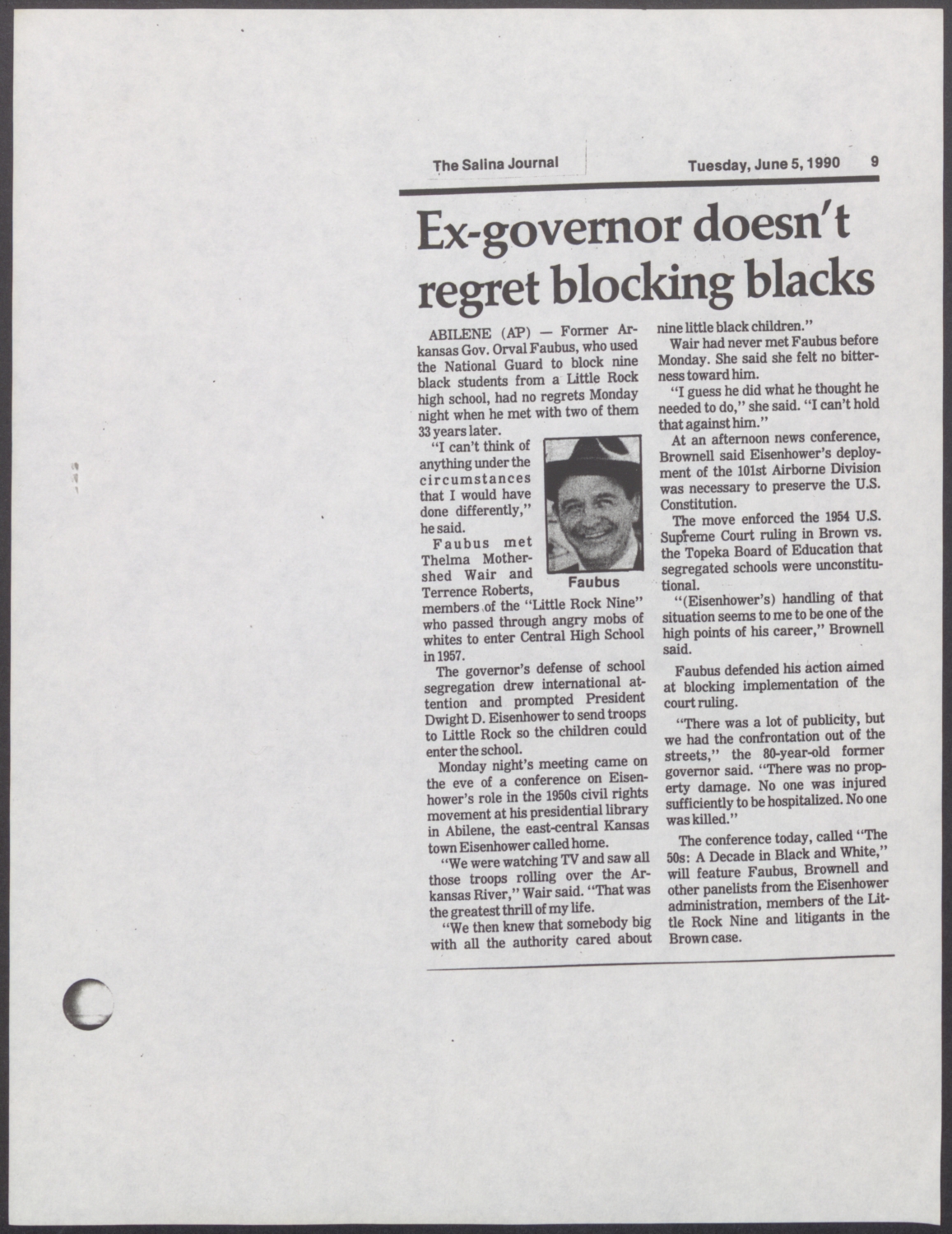Introduction
In 1955, following Brown v. Board of Education, the Little Rock school board accepted a plan of gradual integration presented by superintendent Virgil Blossom. According to the plan, Little Rock schools were to begin the integration process in the fall of 1957. However, when nine African American students enrolled in previously all-white Little Rock Central High School appeared in front of their new school on September 4, 1957, they were met by a white angry mob and the Arkansas National Guard. Governor of Arkansas Orval Faubus called the latter not to protect the black students’ right to an equal education but to block them from entering the school building. In response to this violation of federal laws, President Dwight Eisenhower federalized the Arkansas National Guard and ordered them to support the integration and protect the African American students. The students are known today as the Little Rock Nine and the events are remembered as the Little Rock Crisis.
In this activity, you will examine a newspaper article that reports on a meeting between two members of the Little Rock Nine, Thelma Mothershed Wair and Terrence Roberts, and former governor Orval Faubus that took place over thirty years after the Little Rock Crisis. The meeting was part of the conference titled “The 50s: A Decade in Black and White.”
Activity Questions
- How many years after the Little Rock Crisis was this article written and published?
- How did former governor Orval Faubus feel about his 1957 decision to block the Little Rock Nine from entering Little Rock Central High School in 1990? How did he defend his 1957 actions?
- How did Thelma Mothershed Wair, one of the Little Rock Nine, respond to Faubus’ 1990 comments?
- What do you think about Faubus’ defense of his 1957 actions? What do you think about Mothershed Wair’s response to it?
- What does the interaction between Faubus, Mothershed Wair, and Terrence Roberts described in this article tell us about racial relations in 1990?
- How would you interpret the title of the conference mentioned in this article: “The 50s: A Decade in Black and White”?
Primary Sources
To learn more about the primary sources featured in the activities above, click the following links:
Arkansas Social Studies Standards
Arkansas History, Grades 7 – 8
- Strand: History Content Standard 7: Students will examine the impact of historical events and people on the development of Arkansas.
- H.7.AH.7-8.8 Analyze social, economic, and political effects of the Civil Rights Movement on various regions in Arkansas from multiple perspectives (e.g., integration, state legislation)
Arkansas History, Grades 9 -12
- Strand: Era 5: World War II Through the Civil Rights Era 1941-1967
- Content Standard 5: Students will analyze factors that influenced the perspectives of Arkansans from World War II through the Civil Rights Era.
- Era5.5.AH.9-12.4 Analyze the social, economic, and political effects of the Civil Rights Movement in various regions of Arkansas using primary and secondary sources from multiple perspectives (e.g., segregation; voting; integration of Fayetteville, Hoxie, and Little Rock School Districts; federal and state legislation)
- Strand: Era 6: Modern Era 1968 to Present
- Content Standard 6: Students will assess ways that the actions of individuals and groups have changed over time and are shaped by the historical context of the Modern Era.
- Era6.6.AH.9-12.4 Analyze ways that Arkansans addressed a variety of public issues by using or challenging local, state, national, and international laws
Key Terms
Downloadable Guides and Handouts
We encourage K-12 educators to use History Alive: Virtually! in a way that will best match their classroom needs. The “Exercise” handout includes a complete exercise as featured on this website, the “Primary Sources” handout includes only primary sources used in the exercise, and the “Questions” handout includes analytical questions from the exercise but is editable and can be easily changed to best match students’ needs.


